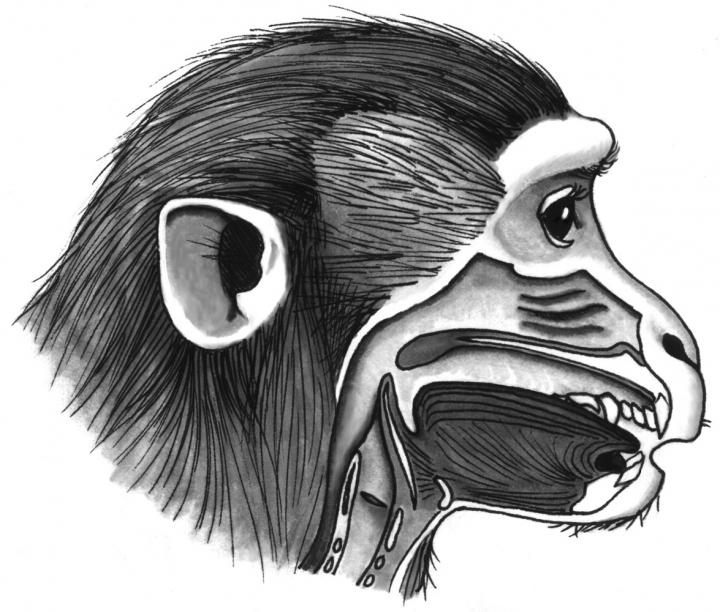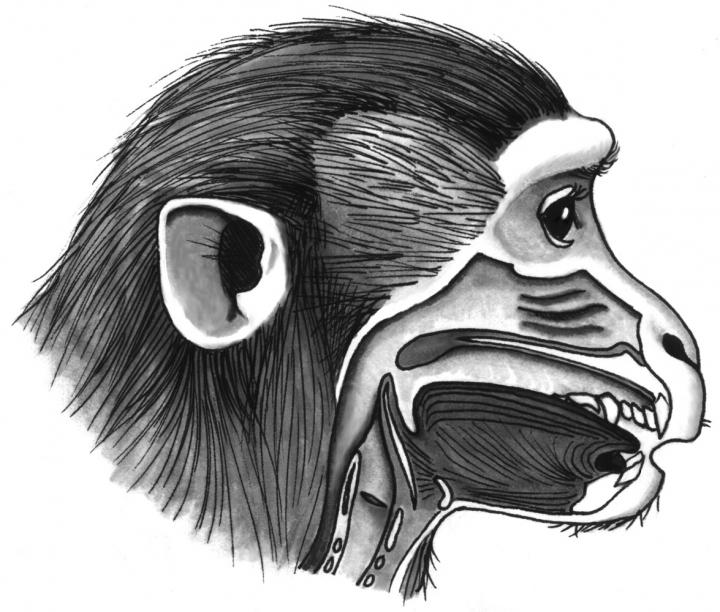
Credit: Copyright: Tecumseh Fitch/University of Vienna
The scientists used x-ray video to see within the mouth and throat of macaque monkeys induced to vocalize, eat food, or make facial expressions. They then used these x-rays to build a computer model of a monkey vocal tract, allowing them to answer the question "what would monkey speech sound like, if a human brain were in control?" This showed that monkeys could easily produce many different sounds, enough to produce thousands of distinct words. Examples of synthesized monkey speech can be heard here:
This implies that a basic form of spoken language could have evolved at any time in human evolution, without requiring any changes in vocal anatomy.
###
Publication in "Science Advances":
W. T. Fitch, B. de Boer, N. Mathur, A. A. Ghazanfar, Monkey vocal tracts are speechready.
Sci. Adv. 2, e1600723 (2016).
DOI: 10.1126/sciadv.1600723
Media Contact
Tecumseh Fitch
[email protected]
43-427-776-111
@univienna
http://www.univie.ac.at/en/
############
Story Source: Materials provided by Scienmag





